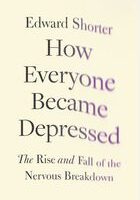In 701 B.C. the Assyrian empire was in its ascendancy. It had already vanquished the kingdom of Israel to the north including the capital at Samaria. It then prepared an assault on Judah and its capital at Jerusalem.
But in one of those significant events that changes the course of world history, Assyria was repelled. Jerusalem was saved until 586 B.C. when the Babylonians sacked the city, forcing its leadership class into exile.
Henry Aubin, in a major feat of scholarship, determines that Jerusalem was aided by a Kushite army from Africa which had marched northeast from the Nile valley. While the Bible attributes the Assyrian retreat to an angel and secular commentators cite pestilence, Aubin, in a meticulously documented work, demonstrates that an alliance with the African nation of Kush bolstered Jerusalem’s defences.
Kush, also known as Nubia, was located in what is now southern Egypt and northern Sudan. A monarchy that existed for more than 1000 years, from 900 B.C. to A.D. 350, Kushites held sway over Egypt from 712 B.C. to about 660 B.C. Of Egypt’s 31 dynasties, this, the 25th Dynasty, is the only one that all scholars agree, was black.
The commander of the Kushite expeditionary force was Taharqa (or as the Bible calls him Tirhakah). This Kushite prince, who had his own interests in halting Assyrian expansion, likely caught the aggressors by surprise as they prepared their siege of Jerusalem.
Aubin offers a thrilling military history and a stirring political analysis of the ancient world. He also sees the event as influential over the centuries.
The Kushite rescue of the Hebrew kingdom of Judah enabled the fragile, war-ravaged state to endure, to nurse itself back to economic and demographic health, and allowed the Hebrew religion, Yahwism, to evolve within the next several centuries into Judaism. Thus emerged the monotheistic trunk supporting Christianity and Islam.

Edward Shorter, American-born, who earned his PhD at Harvard is a renowned scholar and author. His plethora of books include the classic work A History of Women’s Bodies (Basic), A History of Psychiatry from the Era of the Asylum to the Age of Prozac (Wiley) a new works, The Historical Dictionary of Psychiatry (Oxford University Press), Written In The Flesh: The History of Desire (University of Toronto Press), and Shock Therapy with David Healy (Rutgers University Press). He is a professor of history at the University of Toronto.
“A witty foray into the worlds of psychiatry and pharmacology.”
Library Journal
Oxford University Press 2013
How Everyone Became Depressed
The Rise and Fall of the Nervous Breakdown
This book argues that psychiatry’s love affair with the diagnosis of depression has become a death grip. Depression is a real illness, especially in its melancholic form. But most patients who get the diagnosis of ‘depression’ are also anxious, fatigued, unable to sleep, have all kinds of physical symptoms, and tend to obsess about the whole thing. They do not have a disorder of ‘mood’. It is a travesty to call them all ‘depressed.’ How did this happen? How did everyone become depressed?